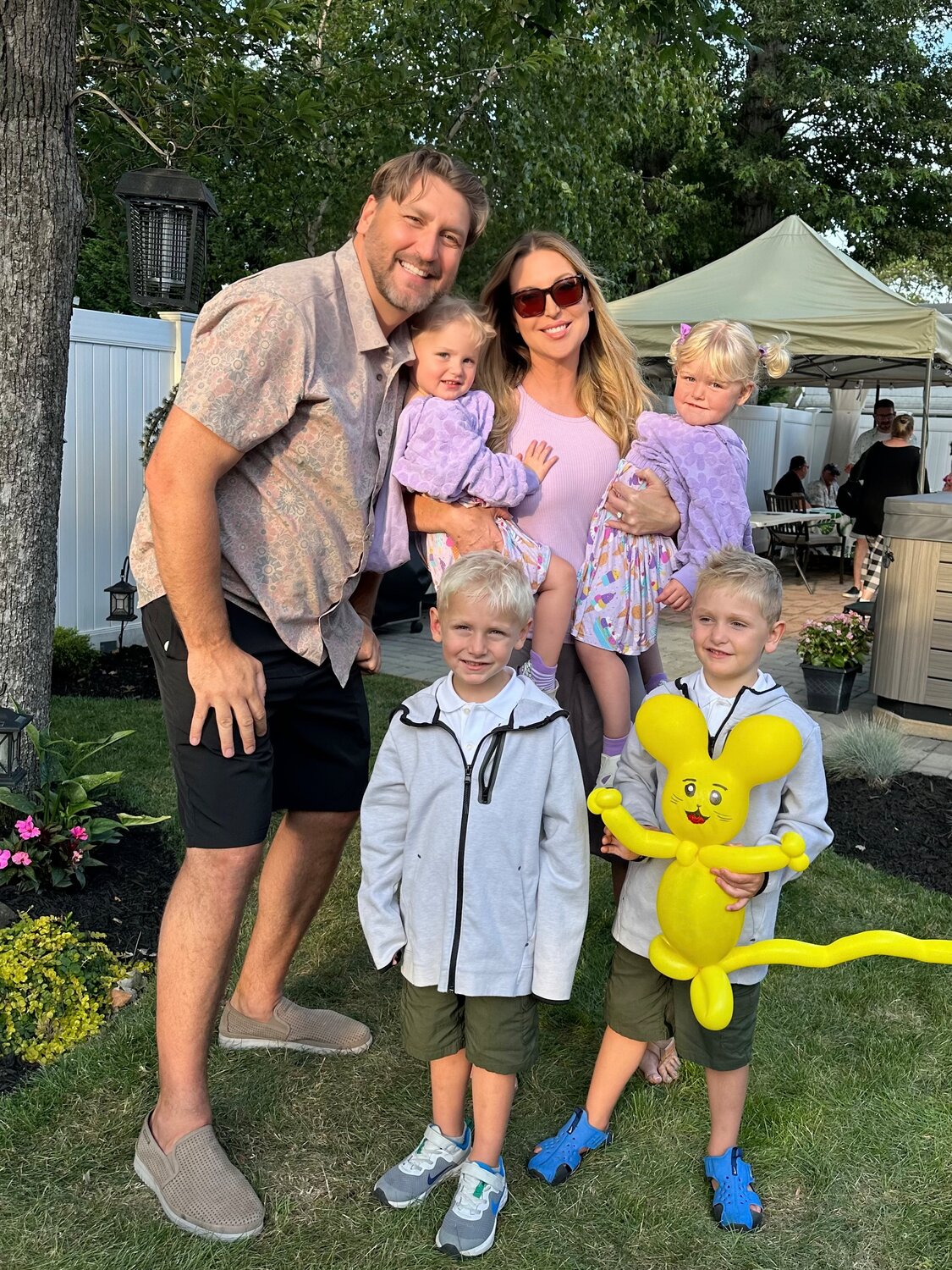Long Beach hopes to raise awareness for a little-known childhood speech disorder
Childhood apraxia of speech is a disorder that makes it difficult for a child to speak. They know what they want to say, but find it nearly impossible to coordinate the movements of lips, tongue and jaw that are necessary to form the words.
Kristi Rook-Sorise, of Long Beach, has a son with the disorder, and volunteers for Apraxia Kids, a nonprofit that offers support to families dealing with it. May is Apraxia Awareness Month, and Rook-Sorise sees the month as an opportunity to heighten awareness of the disorder.
Her son, Bobby, 5, has had difficulty speaking since he was a toddler — unlike his twin brother, Joseph, who speaks normally. But Bobby was not initially diagnosed with apraxia, and Kristi and her husband, David Sorise, had no idea what his condition was. They were told he had a phonological delay, which makes it difficult for a child to produce sounds or sequences of sounds. He might, for example, pronounce cat as “tat.”
“He wasn’t nonverbal or anything, but his articulation was so garbled,” Rook-Sorise recalled. “He had amazing receptive language, which means he could understand what you’re trying to do or knew what he was looking at, but his expressive language had a severe deficit.”
When Bobby’s speaking skills didn’t improve, his mother found a study of children’s speech being conducted by New York University in the fall of 2022, and applied for him to join it. The researchers analyzed how he pronounced certain words, and he underwent intensive therapy known as dynamic temporal and tactile cueing, or DTTC, which is designed to improve the brain’s ability to program speech movements. The researchers also used optical facial tracking to assess changes in Bobby’s speech motor control.
He was enrolled in the Hagedorn Little Village School, in Seaford, until last June. The school’s programs include special education as well as speech, occupational and physical therapies, intended to enhance its students’ development. Bobby is now enrolled in Lido Elementary School’s pre-kindergarten, where he still receives support.
He took part in another study at Hofstra University last summer, and this time his mom learned the techniques that were being used. She was instructed how to work with Bobby on motor planning-based speech therapy.
His apraxia, however, is unique, because it affects not just his speech, but his entire body. It’s a “global” apraxia, also known as dyspraxia, a developmental coordination disorder.
“That opened up my eyes to how different a phonological delay is from a motor planning disorder,” his mother said. “You know, when you’re trying to say something, it’s on the tip of your tongue, and it just won’t come out? That’s Bobby with apraxia. In Bobby’s case, it actually affects his arms and legs as well. The signal from his brain to the body to do what he wants to do doesn’t always do what he wants.”
After receiving the diagnosis, clarification and help, Rook-Sorise wanted to make more people aware of apraxia. Around the country, May 14 is recognized as Apraxia Awareness Day. This year, thanks to the Sorise family, it will be more of a focus in Long Beach.
On the 14th, City Council Vice President Chris Fiumara, Nassau County Legislator Patrick Mullaney and State Sen. Patricia Canzoneri-Fitzpatrick will present a proclamation at the Cabana Restaurant that will ensure that Long Beach joins in recognizing Apraxia Awareness Day. David Sorise’s band, the Big Sexy, will perform, and there will be raffles to help raise funds for Apraxia Kids.
“I want to bring awareness to our community about this speech problem in children,” Rook-Sorise said. “Childhood apraxia of speech is still unfamiliar, misunderstood, and continues to have a significant impact on children and their families. Speech and communication are critical skills for young children to develop. We need to support children with apraxia of speech and their families.”
Based on what they learned from the studies and their work with Hagedorn, her family recently had the chance to present a variety of options to the Long Beach School District for Bobby’s speech therapy and special-education program. Rook-Sorise is optimistic about finding a solution that will best support her son’s developmental needs, and says she appreciates the district’s ongoing consideration.
“As Bobby prepares to continue his educational journey, it’s crucial that he receives consistent access to this specialized motor planning therapy throughout the school year,” she wrote in an email. “We are hopeful that our collaboration with the Long Beach school district will enrich Bobby’s learning environment, allowing him to develop his speech further and align his communication skills with his twin brother. This support is essential for Bobby’s academic and social-emotional growth as he progresses into kindergarten and beyond.”









